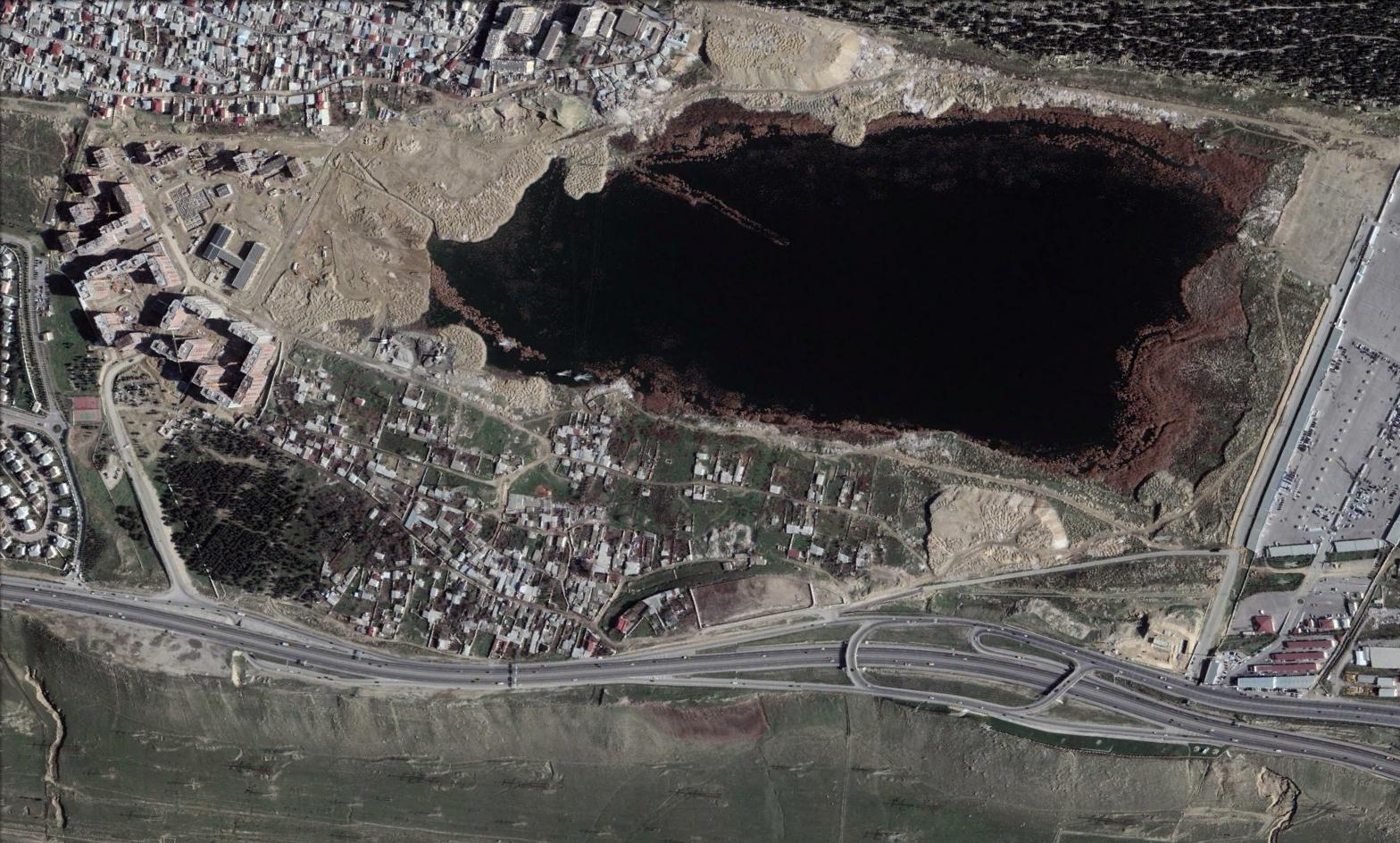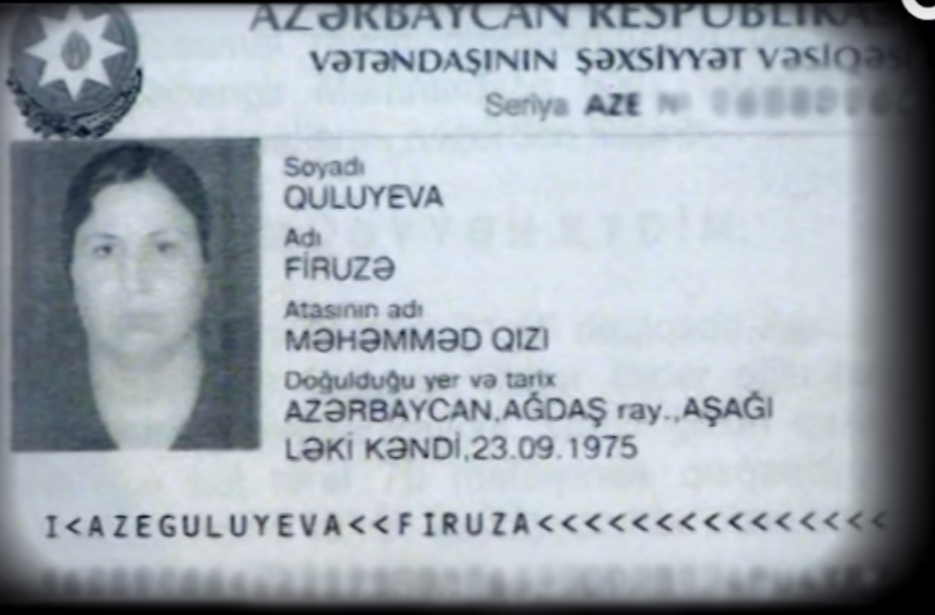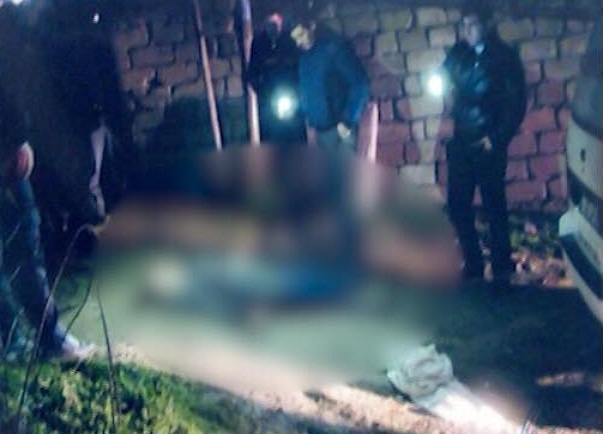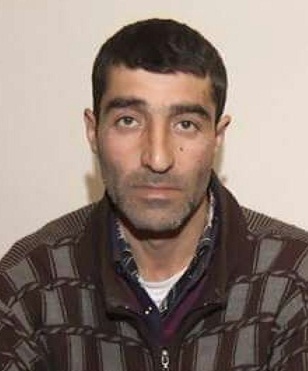Chinara Nurmammadova
“My father said that if we left home, he would set it on fire. But my mother and I did not take it seriously, and left to go to my uncle Mayis’s house.

We had walked only 150-200 meters when we saw that my mother’s room was burning.
We ran back angrily and ask my father why he did it. He was drunk and stabbed both of us. But it was neither the first, nor the last...”
The last came a year later, when his father killed his mother.
The fire incident took place on March 8, 2016, in Agdash, Azerbaijan (204 km away from Baku). Akbar Guluyev, born in 1974, and Firuza Guliyeva (1975) were married in 1992 and they had two children named Taleh Guliyev and Aytaj Mammadova.
Taleh Guliyev, 23, said his parents often quarreled because of the jealousy of his father. The police were aware of this incident, but Akbar Guliyev promised to give up alcohol.
So his parents applied for reconciliation, and the father was set free after paying a fine of only 67 manat (about $US40).
According to Taleh, his mother was beaten by her husband and hospitalized a month before the fire, but his mother neither called the police nor took any other step.
“My father would drink alcohol, and when he was drunk he often had a conflict with my mother. My father did not work, and my mother worked at a candy shop in Agdash. She set off for work at 5 am and came back at 3-4 pm.
Once she went in an old man’s car, and my father saw them. Actually the old man was a taxi driver, but my father claimed that my mother betrayed him with that man.
That day there was a brawl in our house because of it.” Taleh said his father punched his mother, and that she was treated at Central Hospital in Agdash City for 20 days before coming back home.
Taleh, who got married two weeks after the fired and had a job as a laborer, said he suggested to his mother that she move to Baku and with he and his new wife Khanim and find a job there.
 But moving to Ganligol village in Baku did not save her. She moved to Baku in February 5, 2017, and started to work as a dishwasher in a small cafe.
But moving to Ganligol village in Baku did not save her. She moved to Baku in February 5, 2017, and started to work as a dishwasher in a small cafe.
Her husband, who was still unemployed, often called his wife using her brother’s phone and demanded money.
Taleh suggested his father come to Baku and find work.
After a month his father came:“The next day he told me to stay at home and rest as I was tired, and that he would bring my mother home.
"After a while my sister called my mother, but she did not answer. I went to my mother’s workplace and saw the police there. When I got closer, I saw my mother was dead because of bleeding.”
Taleh insisted that his father had no reason to commit this crime. But Akbar testified in court that his wife betrayed him and he could not endure it.
“I could not prove it previous times, but the last time I found two condoms and other items about her sexual relations with someone," he told the court.
"When I showed them she could not answer at first, and then said that all of them belonged to Taleh’s wife. I could not tolerate her slandering my daughter-in-law.”
But Taleh Guliev denied his father’s claims: “My father lied and libeled my mother. I will never forgive him for killing my mother. He is a liar and a gambler.
I want him to be punished severely. I do not accept him as my father anymore”.
Mushfig Ibrahimli, 27, witnessed Guliev stabbing his wife.
Ibrahimli said she was walking toward home when Guiev came and stabbed her 10 times with a knife he took from the kitchen.
“I saw a man with a knife attacking a woman who was lying on the ground. Then he ran away and I approached to help her.
When I saw her, I immediately went home and ask for help from my mother. I thought that it would be better if there were two of us trying both to catch the murderer and help the victim.”

Ibrahimli's’s mother called the ambulance and police, but it was too late. She died before help came.
“I watched on TV news about the crime and learned that thename of the woman was Firuza, and the man who killed her was her husband Akbar, who confessed his action to the police. He also showed the knife as a proof of the crime,” Ibrahimli said.
The victim's brother Mikail Maisov said after many years of marriage, they bought a plot of land. Six years later they finished building a house.
He says his sister's monthly salary at the candy shop was 220 manat (about $US130), but that her son made her quit that job in order to solve problems between his mother and father.
Their daughter Aytaj Mammadova confirmed her brother’s comments that her father often drank alcohol and beat their mother. Mammadova married in 2013 and did not live with her parents.
 Guliev was imprisoned for 10 years and 6 months. The court decided he committed the crime intentionally, and did not have any mental disorder.
Guliev was imprisoned for 10 years and 6 months. The court decided he committed the crime intentionally, and did not have any mental disorder.
But since he confessed to the crime and handed over the knife, Guliev was only convicted under paragraph 120.1 of the Criminal Code (Deliberate murder, as deliberate deprivation of life of other person).
The prosecution started the criminal case under paragraph 120.2.4 of the Criminal Code (committed with special cruelty or in publicly dangerous way). Basing on this paragraph he could get 18-20 years or lifetime imprisonment.
At the last court session, judge Faig Ganiev declared the sentence. He ruled that it was proved that the criminal did not intend special cruelty.
He just aimed to kill his wife for honour.
That is why the Court preferred paragraph 120.1 of the Criminal Code (Deliberate murder, as deliberate deprivation of life of other person) over paragraph 120.2.4 (committed with special cruelty or in publicly dangerous way).
This paragraph considers 9 to 14 years of imprisonment.
However, according to the paragraph 59.1.9 and article 60 of the Criminal Code, a murderer who gives himself up and confesses cannot be given a term of punishment exceeding three-quarters of the limit of a more strict punishment as provided by appropriate article of the present code.
Akbar Guliev went to the police right after the murder and confessed.
He also took the knife used in the crime and gave it to the police. So he could not be jailed for more than three-quarters of 14 years, which is 10 years and 6 months.
Though the prosecution wanted 18 years of imprisonment for this crime, the judgement of the court was not protested.